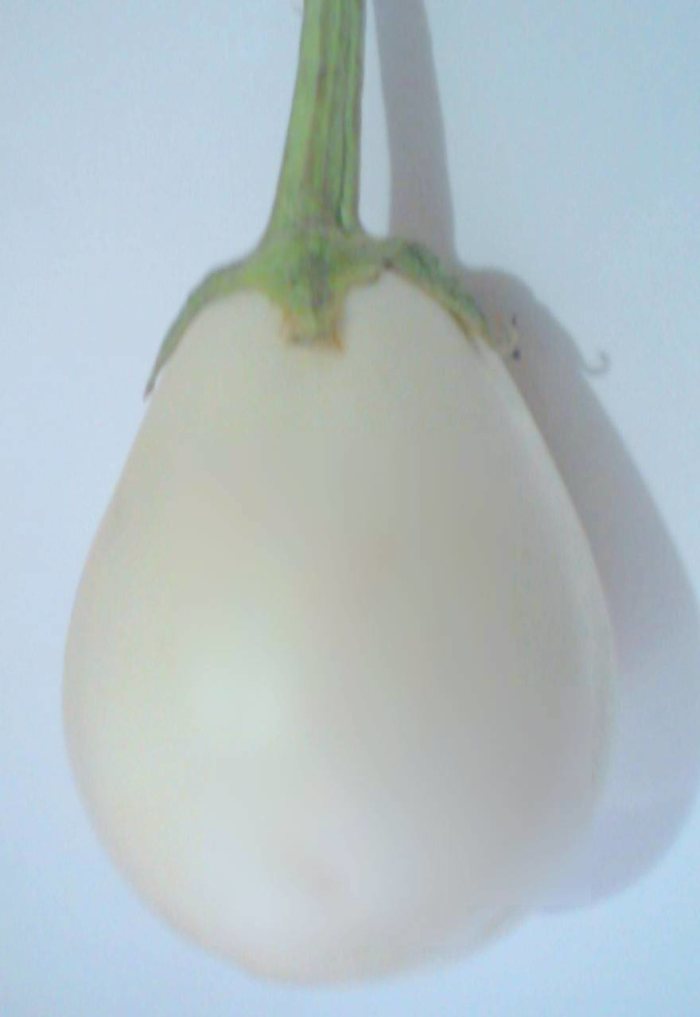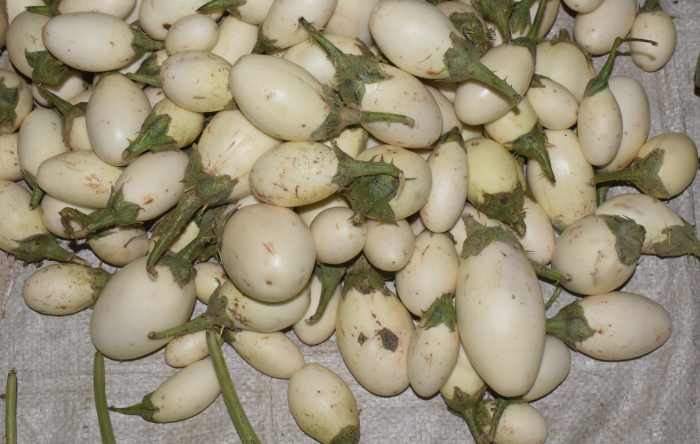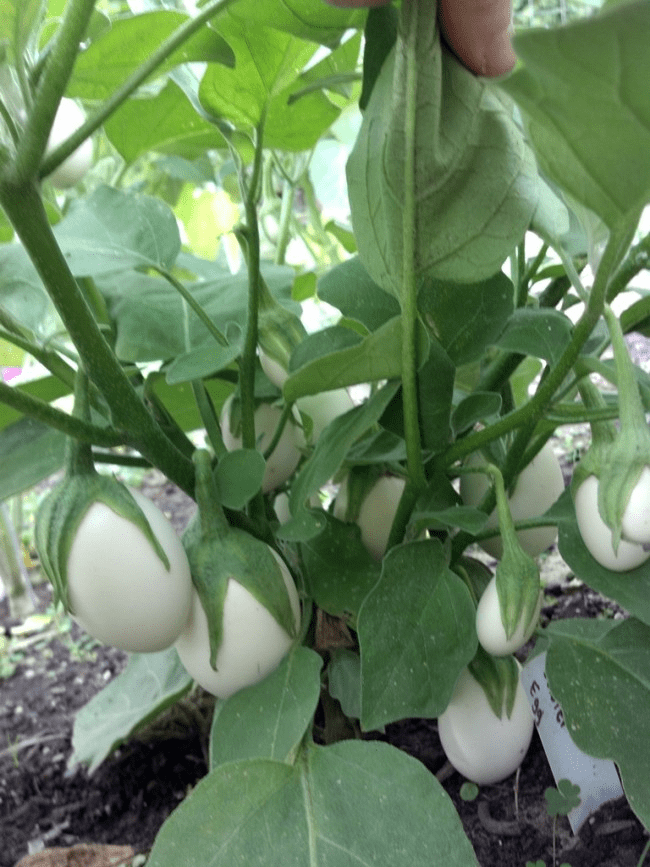When you think of an eggplant, you probably envision a long, purple fruit – after all, eggplants are technically fruits, though we typically enjoy them in savory dishes rather than sweet ones. But did you know there’s more to eggplants than just the traditional purple variety?
Eggplants can be incredibly versatile in the kitchen, serving as a delicious addition to many dishes or even taking the spotlight on their own. Whether they’re grilled, baked with tomato sauce and cheese, or incorporated into a hearty casserole, eggplants offer a unique flavor and texture that can elevate any meal.

Photo Credit: Wikimedia
But let’s pause for a moment and consider the peculiar name of this fruit. Despite being called “eggplant,” the traditional variety bears little resemblance to an actual egg. However, when we take a closer look at certain types of eggplants, such as the white variety, the name suddenly starts to make sense.
White eggplants, also known as white aubergines, boast a creamy white hue rather than the typical deep purple color we associate with eggplants. While some white eggplants may appear small, they can also grow to be longer in size, much like their purple counterparts.

Photo Credit: Wikimedia
In terms of taste, raw eggplants of any color tend to be slightly bitter and tough, resembling a sponge in texture. However, once cooked, eggplants have a remarkable ability to absorb the flavors of the ingredients they’re paired with. Whether grilled, roasted, sautéed, fried, or baked, eggplants shine in dishes featuring light sauces or delicate flavors – just be careful not to overcook them, as they can become squishy if left on the heat for too long.
White eggplants, in particular, are described as having a “fruity and mild” flavor by Specialty Produce, with cooked white eggplant boasting a “warm” and “mellow” taste. Due to their thicker skin, it’s recommended to peel white eggplants before cooking or eating, whereas the thinner skin of purple eggplants can be eaten without peeling.

Photo Credit: Wikimedia
While white eggplants may not be as readily available as their purple counterparts, they can often be found in specialty markets or through online seed catalogs for avid home gardeners. And despite their somewhat mysterious name, eggplants have a rich history dating back to 544 AD in China, with European farmers in the 1700s attributing their name to their resemblance to small white or yellow eggs.

Photo Credit: Reddit
So, the next time you’re in the produce aisle, don’t overlook the white eggplant – it may just surprise you with its unique flavor and versatility in the kitchen.
Sources: Newsner
